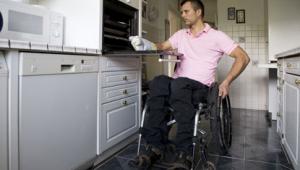The PAC also observed that, despite an increase in the cost of assessments, there has been no noticeable benefit for claimants or taxpayers and standards may even have deteriorated as companies prioritise timeliness over quality.
Meg Hillier, chair of the PAC, said in this case poor performance has a tangible human impact and that there is a long way to go before those subject to assessments for Employment and Support Allowance and Personal Independence Payments can be confident of getting the service they deserve.
She added that the programme's troubled history “hammers home the importance” of getting it right and holding contractors to account.
But the PAC found that currently up to one in five, or between 7% and 20%, of assessments do not meet the required standard, despite rising costs.
The DWP expects the cost of contracts with companies to more than double, to £579m, in 2016/17.
The cost of individual assessments has also increased. Under the most recent contract, one assessment for Employment and Support Allowance now costs £190 instead of £115.
However the committee found there had been “no noticeable benefit for claimants or taxpayers”. The Disability Benefits Consortium, which gave evidence to the committee, said that efforts to increase the speed of assessments, while resulting in fewer long delays, were even resulting in a decline in quality.
In one evidence session, Phil Reynolds, co-chair of the DBC, said the consortium has “real concerns that quality is being affected by speed”, noting that the fact that around 60% of appeals against decisions for both Employment and Support Allowance and Personal Independence Payments are successful demonstrates this.
While the committee and its witnesses agreed there has been some improvement in reducing delays on decisions, in some cases the speed of assessments is still unacceptably slow. ESA assessments for example take on average 23 weeks.
The committee found that even when speed is not an issue, claimant experience is often poor. Citizens Advice told the committee it had seen some 30,000 cases where individuals had to travel unreasonably far to medical assessments, with “arduous” journey times of up to 70 minutes, and instances of double-booked appointments.
Assessors also use evidence inconsistently and Hillier noted they often “simply do not understand” many conditions, especially when it comes to those that fluctuate or are related to mental health.
The committee said it expects the DWP to make significant progress within 12 months on ensuring its contractors make the process easier for claimants and that assessors are knowledgeable and sensitive to complex issues.
The PAC also said that, until now, the department appears to have repeatedly misjudged what contractors can deliver and the uncertainties underlying what can be achieved, with contractors telling the committee they would be unlikely to meet some contractual targets.
Across the country, the committee found unacceptable variations in the performance of contractors. It noted that the DWP does not publish information on local and regional performance and criticised this lack of transparency.
Further risks to value for money come from operational uncertainties in contracts, such as how many claims can be completed, which may deter future bidders. One contractor, Atos, has even paid to exit an ESA contract early, while the current contractor expects to make a loss in the first year.
Other bidders have withdrawn from procurement processes, and two major contractors, Atos and Capita, refused to comment to the committee on whether they would consider re-bidding for PIP contacts.
The PAC said it was concerned that a lack of competition in the market for health and disability assessments represents a real risk to value for money.
“These are some serious failings that must be dealt with rigorously,” said Hillier. “We expect to see evidence of a more enlightened approach to the needs of claimants, greater transparency over contractor performance and a renewed focus on improving the quality of assessments.”
A DWP spokesman said: "As highlighted in this report, we have made good progress to improve health and disability assessments; greatly reducing the backlog and cutting waiting times. But we know there is more to do and remain committed to working with our providers to ensure claimants get the best possible level of service, and taxpayers the best value for money."
He added the department would respond in due course to the findings.




















